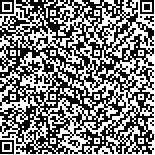| Quote
: |
白永江,马骏麒,马建军.香天麻汤对2级原发性高血压病阴虚阳亢型血压变异性的影响及安全性分析[J].湖南中医药大学学报英文版,2018,38(10):1195-1199.[Click to copy
] |
|
| |
|
|
| This paper
:Browser 4009times Download 2340times |
| 香天麻汤对2级原发性高血压病阴虚阳亢型血压变异性的影响及安全性分析 |
| 白永江,马骏麒,马建军 |
| (新疆医科大学附属中医医院, 新疆 乌鲁木齐 830000) |
| 摘要: |
| 目的 观察香天麻汤对2级原发性高血压病阴虚阳亢型血压变异性的影响。方法 收集2016年1月至2017年1月在新疆维吾尔自治区中医医院高血压科住院及门诊就诊的2级原发性高血压阴虚阳亢型患者200例,按照随机数字表法进行分组,随机单号为观察组(香天麻汤+贝那普利)100例,随机双号为对照组(贝那普利)100例,均持续治疗2周。对比两组中医临床疗效,分别于治疗前及治疗2周后观察中医证候改善情况,并分析血压变异性变化,主要指标包括24 h舒张压变异系数(diastolic blood pressure variation 24 hour,24 hDBpCV)、24 h收缩压变异系数(systolic blood pressure variation 24 hours a day,24 hSBpCV)、日间收缩压变异系数(systolic blood pressure variation during the day,DSBpCV)、日间舒张压变异系数(diastolic blood pressure variation during the day,DDBpCV)、夜间收缩压变异系数(systolic blood pressure variation at night,NSBpCV)及夜间舒张压变异系数(nocturnal diastolic blood pressure Variations,NDBpCV)。结果 观察组总有效率为95.0%,对照组为86.0%,差异有统计学意义(P<0.05)。治疗前两组患者血压变异性差异无统计学意义(P>0.05);治疗后两组血压变异性(24 hDBpCV、24 hSBpCV、DSBpCV、DDBpCV、NSBpCV及NDBpCV)均低于治疗前,且观察组均低于对照组,差异有统计学意义(P<0.05);两组治疗后中医证候(面红目赤、腰膝酸软、头痛、头晕目眩)评分均低于治疗前,且观察组评分均明显低于对照组,差异有统计学意义(P<0.05);观察组不良反应发生率为2.0%,对照组为6.0%,差异无统计学意义(P>0.05)。结论 香天麻汤治疗2级原发性高血压阴虚阳亢型疗效显著,能明显改善患者中医临床症状,降低血压变异性。 |
| 关键词: 2级原发性高血压 香天麻汤 阴虚阳亢型 血压变异性 |
| DOI:10.3969/j.issn.1674-070X.2018.10.023 |
| Received:November 29, 2017 |
| 基金项目:山东省科技计划项目(1401025019)。 |
|
| Effect of Xiangtianma Decoction on Blood Pressure Variability and Its Safety in Stage 2 Primary Hypertension Patients with Yin-Deficiency and Yang-Hyperactivity Syndrome |
| BAI Yongjiang,MA Junqi,MA Jianjun |
| (Affiliated Traditional Chinese Medicine Hospital of Xinjiang Medical University, Urumqi, Xinjiang 830000, China) |
| Abstract: |
| Objective To observe the effect of Xiangtianma Decoction on blood pressure variability in stage 2 primary hypertension patients with Yin-deficiency and Yang-hyperactivity syndrome. Methods A total of 200 stage 2 primary hypertension patients with Yin-deficiency and Yang-hyperactivity syndrome, who were hospitalized or visited the outpatient services at the Department of Hypertension of Traditional Chinese Medicine Hospital of Xinjiang Uygur Autonomous Region from January 2016 to January 2017, were recruited. In accordance with the random number table, the 100 patients with odd numbers were randomly assigned to observation group (treated with Xiangtianma Decoction plus benazepril), while the 100 patients with even numbers were assigned to control group (treated with benazepril). The therapy in both groups lasted for 2 weeks. To compare the traditional Chinese medicine (TCM) outcome between the two groups, the improvements in TCM syndromes were evaluated after 2 weeks of treatment. Blood pressure variability was also analyzed; the main indicators included 24-hour diastolic blood pressure coefficient of variation (24 hDBPCV), 24-hour systolic blood pressure coefficient of variation (24 hSBPCV), daytime systolic blood pressure coefficient of variation (dSBPCV), daytime diastolic blood pressure coefficient of variation (dDBPCV), nighttime systolic blood pressure coefficient of variation (nSBPCV), and nighttime diastolic blood pressure coefficients of variation (nDBPCV). Results The observation group had a significantly higher overall response rate than the control group (95.00% vs 86.00%, P<0.05). There was no significant difference in blood pressure variability between the two groups before treatment (P>0.05). After treatment, both groups showed significant reductions in blood pressure variability (24 hDBPCV, 24 hSBPCV, dSBPCV, dDBPCV, nSBPCV, and nDBPCV) (P<0.05), and these indices were significantly lower in the observation group than in the control group (P<0.05). The TCM syndrome scores in both groups (red face and eyes, soreness and weakness of the waist and knee, headache, and dizziness) were reduced significantly after treatment (P<0.05), and the observation group had significantly lower scores than the control group (P<0.05). The incidence of adverse reactions in the observation group and control group was 2.0% and 6.0%, respectively, with no significant difference between the two groups (P>0.05). Conclusion Xiangtianma Decoction has significant efficacy in the treatment of stage 2 primary hypertension patients with Yin-deficiency and Yang-hyperactivity syndrome; it can significantly reduce TCM symptoms and reduce blood pressure variability. |
| Key words: stage 2 primary hypertension Xiangtianma Decoction Yin-deficiency and Yang-hyperactivity blood pressure variability |
|

二维码(扫一下试试看!) |
|
|
|
|


